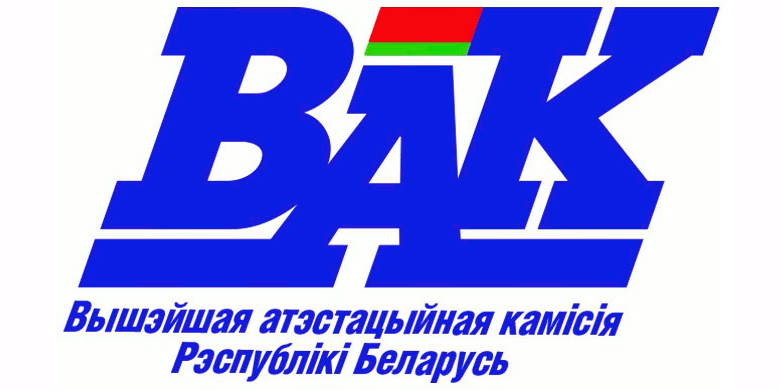Проблемы экономической оценки концентрации производства и способы их разрешения.
Аннотация
Для оценки концентрации производства традиционно используют целую систему измерителей, которые не дают однозначного ответа относительно размера концентрации и нередко противоречат друг другу. В статье предпринята попытка доказать, что рекомендуемые экономической наукой приемы оценки концентрации производства не позволяют получить четкую количественную формализацию ее границ и масштабов. На этом основании сделано заключение о необходимости разработки новых подходов и критериев для экономической оценки концентрации производства. Автор статьи предлагает систему коэффициентов отраслевой, региональной и продуктовой концентрации. На примере перерабатывающей промышленности АПК Беларуси показывает направления их применения. Исследованием охвачен почти столетний период истории республики, особое внимание уделено тем тенденциям, которые сложились в перерабатывающих отраслях АПК в трансформационный период ее суверенной истории. = To estimate the concentration of production is traditionally used a system gauges that do not give a clear answer about the size of concentration and often contradict each other. The author makes an attempt to prove that the recommended economics techniques estimate the concentration of production is not possible to obtain accurate quantitative formalization of its borders and scale. On this basis, the conclusion about the need for new approaches and criteria for assessing the cost of production concentration. The author proposes a system of new coefficients industry, regional and product concentration and the example of agricultural processing industry of the Republic of Belarus shows the feasibility of their application. The study covered the period of nearly a century of history of the republic, it focuses on the trends that have developed in the process industries in the agricultural transformation during its sovereign history.Библиографические ссылки
Лемешевский, И.М.. Микроэкономика : учебное пособие для вузов / И.М. Лемешевский. – 3–е издание. – Минск : ФУАинформ, 2006. –510 с.
Золотогоров, В.Г. Экономика: энциклопедический словарь / В.Г. Золотогоров. – Минск : Интерпрес-сервис,2003. – 720 с.
Статистика : показатели и методы анализа. Справочное пособие / Н.Н. Бондаренко [и др.]; под общ. ред. М.М. Новикова. – Минск : Современная школа, 2005. – 628 с.
Национальный интернет–портал Республики Беларусь [электронный ресурс] / национальный статистический комитет Республики Беларусь / Промышленность РБ 2011. Режим доступа: http://belstat.gov.by/. – Дата доступа: 15.09. 2012
Национальный Интернет–портал Республики Беларусь [Электронный ресурс] / Национальный центр правовой информации. Режим доступа: http: pravo.by. – Дата доступа: 25.10. 2011
Практикум по теории статистики : учебное пособие. / Р.А. Шмойлова [и др.]; под ред. Р.А. Шмойловой. – Москва : Финансы и статистика, 1999. – 416 с.
Загрузки
Как цитировать
Выпуск
Раздел
Лицензия
Автор предоставляет Редакции журнала на весь срок действия исключительных прав на Произведение следующие права:
1. право на воспроизведение Произведения (опубликование, обнародование, дублирование, тиражирование или иное размножение Произведения) без ограничения тиража экземпляров. При этом каждый экземпляр Произведения должен содержать имя автора Произведения;
2. право на распространение Произведения любым способом;
3. право на включение в составное произведение;
4. право на доведение до всеобщего сведения;
5. на использование метаданных (название, имя автора (правообладателя), аннотации, библиографические материалы и пр.) Произведений путем распространения и доведения до всеобщего сведения, обработки и систематизации, а также включения в различные базы данных и информационные системы.
6. право переуступить на договорных условиях частично или полностью полученные по настоящему договору права третьим лицам без выплаты Автору вознаграждения.
Автор передает права Редакция журналау по настоящему Договору на основе неисключительной лицензии.
Редакция журнала обязуется соблюдать предусмотренные действующим законодательством авторские права, права Автора, а также осуществлять их защиту и принимать все возможные меры для предупреждения нарушения авторских прав третьими лицами.
Территория, на которой допускается использование прав на Произведения, не ограничена.
Автор также предоставляет Редакция журналау право хранения и обработки следующих своих персональных данных без ограничения по сроку:
• фамилия, имя, отчество;
• дата рождения;
• сведения об образовании;
• сведения о месте работы и занимаемой должности;
• сведения о наличии опубликованных произведений литературы, науки и искусства.
Персональные данные предоставляются для их хранения и обработки в различных базах данных и информационных системах, включения их в аналитические и статистические отчетности, создания обоснованных взаимосвязей объектов произведений науки, литературы и искусства с персональными данными и т.п.
Редакция журнала имеет право передать указанные данные для обработки и хранения третьим лицам при условии уведомления о таком факте с предоставлением сведений о третьем лице (наименование и адрес) Автору.
Отзыв согласия на хранение и обработку персональных данных производится Автором путем направления соответствующего письменного уведомления Редакции журнала.
Автор и Редакция журнала несут в соответствии с действующим законодательством Республики Беларусь имущественную и иную юридическую ответственность за неисполнение или ненадлежащее исполнение своих обязательств.
Сторона, ненадлежащим образом исполнившая или не исполнившая свои обязанности, обязана возместить убытки, причиненные другой Стороне, включая упущенную выгоду.
Все споры и разногласия Сторон, вытекающие из условий настоящего Договора, подлежат урегулированию путем переговоров, а в случае их безрезультатности, указанные споры подлежат разрешению в суде в соответствии с действующим законодательством Республики Беларусь.
Расторжение настоящего соглашения возможно в любое время по обоюдному согласию Сторон, с обязательным подписанием Сторонами соответствующего соглашения об этом.
Расторжение настоящего соглашения в одностороннем порядке возможно в случаях, предусмотренных действующим законодательством, либо по решению суда.
Во всем, что не предусмотрено настоящим соглашением, Стороны руководствуются нормами действующего законодательства Республики Беларусь.















.gif)
